The Russia-Ukraine ConflictThe Russia-Ukraine Conflict
Chapter 1
Start of the Russian aggression against Ukraine
by Jan-Ole Thiel
Start of the Russian aggression against Ukraine (1/5)
What happened?
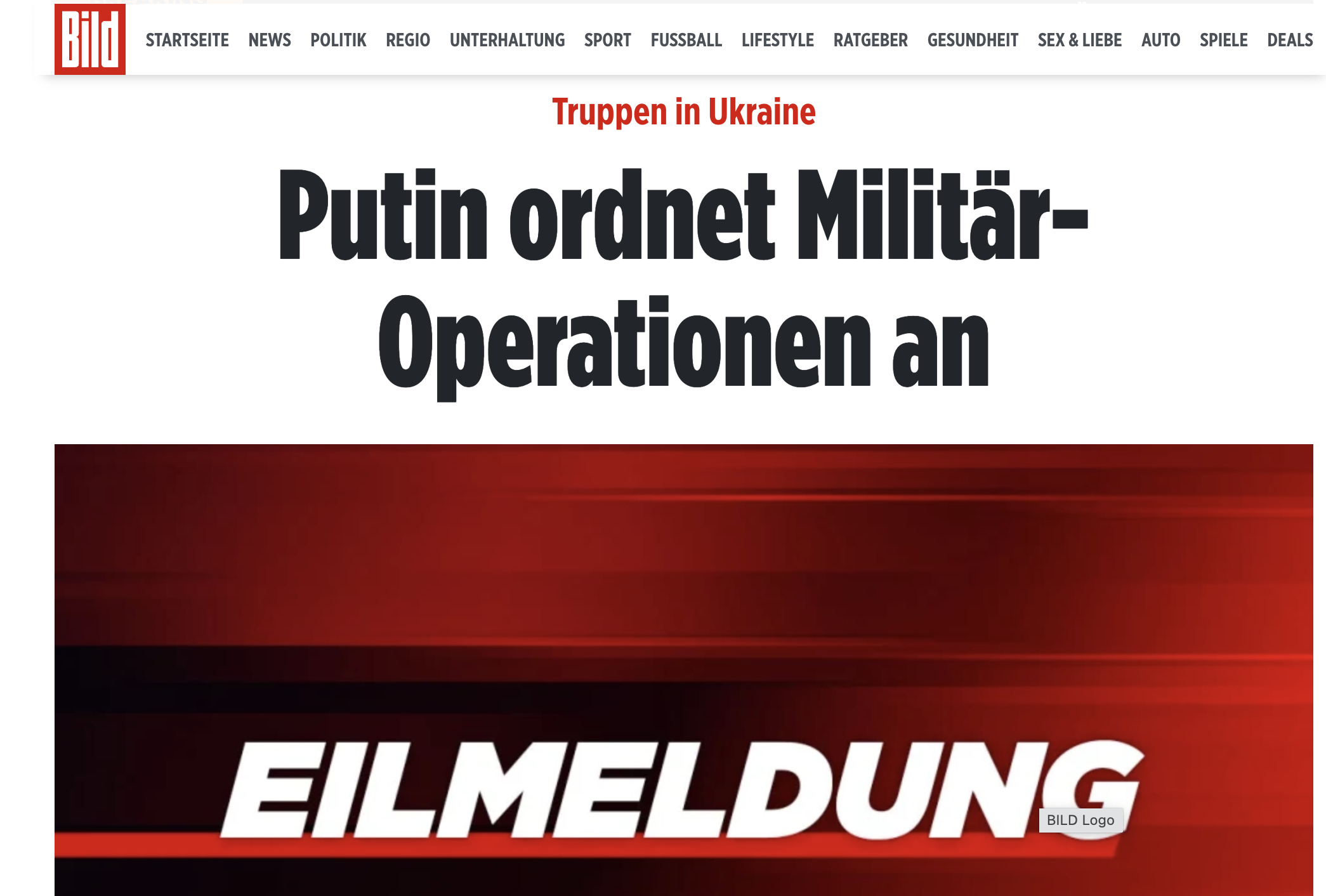
https://www.bild.de/politik/2022/politik/truppen-in-ukraine-putin-kuendigt-militaer-operationen-an-79257348.bild.html
Breaking news from Bild, a German newspaper, from February 24, 2022 4.26 am
On February 24, 2022, Russian President Vladimir Putin announces the "special military operation" on Ukrainian territory. A few minutes later, the first explosions are heard in Kiev and tens of thousands of Russian soldiers cross the Ukrainian border.
Is Putin correct to blame the "West"? Did he have a right to invade Ukraine?
Start of the Russian aggression against Ukraine (2/5)
Violation of the prohibition of aggression?
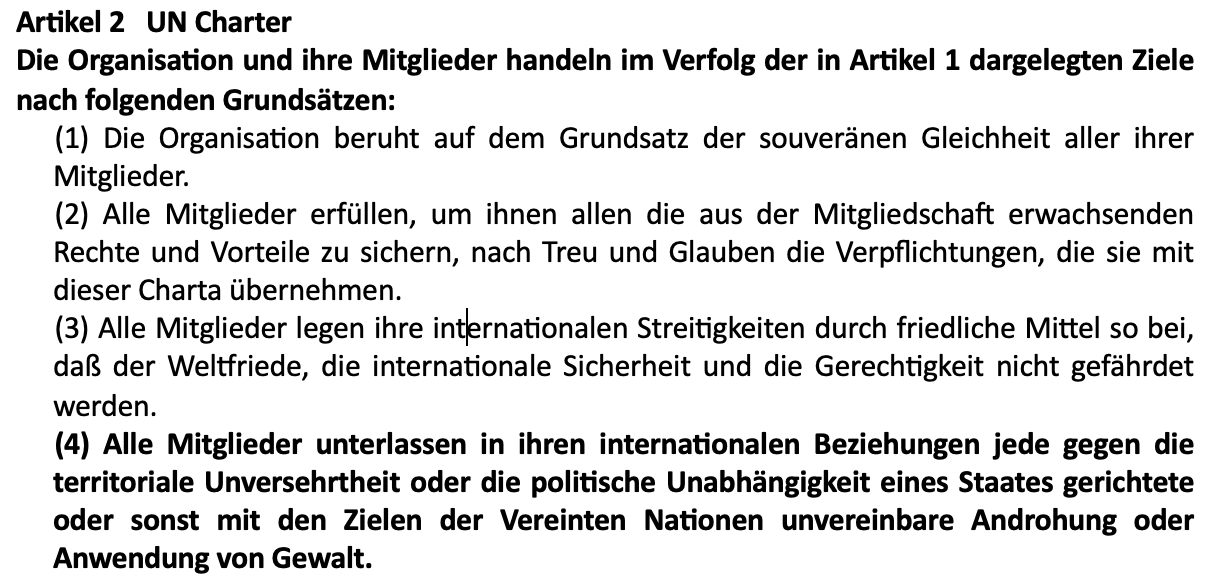
Text of Art. 2 No. 4 UN Charter
Illustration: Marlin Beringer
A legal assessment of these statements is based on the UN Charter and the peacekeeping system. This is characterized by the general prohibition of the use of force in Article 2 no. 4 of the UN Charter: Violence and war between states are prohibited. Only in exceptional situations such as self-defense may military force be used between states. Did Russia defend itself?
In this case, there is no evidence that an attack on Russia was imminent or even took place, as Putin claims. Rather, the behavior of Ukraine and NATO states since the Crimea crisis in 2014 indicates that all states involved were prepared to make concessions to Russia and wanted to avoid a further escalation of the conflict.
Start of the Russian aggression against Ukraine (3/5)
Genocide by Ukraine?
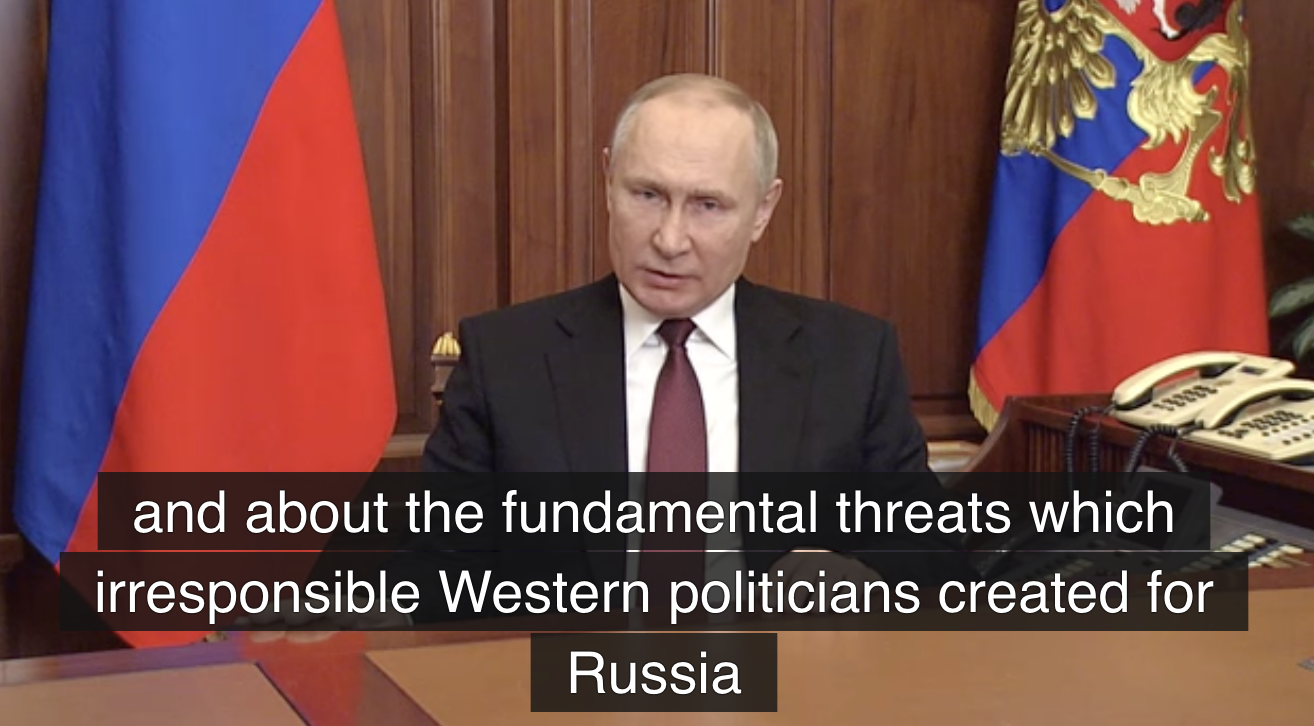
Video mit engliscen Untertiteln abrufbar unter http://en.kremlin.ru/events/president/news/67843
There is also no evidence to support Putin's claims that there have been systematic human rights violations or genocide with the intention of destroying the Russian population in Ukraine. On the contrary, there are indications that Russian activities against the Ukrainian population were already taking place in Donbass before the war and not the other way around.
Start of the Russian aggression against Ukraine (4/5)
"Western" provocations?
Illustration: Marlin Beringer
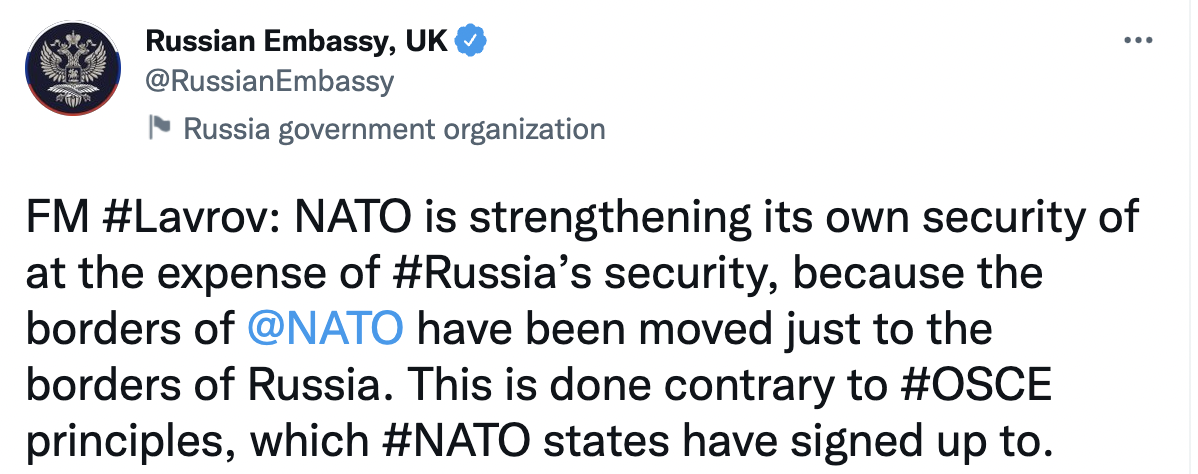
Some see the Russian attack as a predictable reaction to Western provocations: NATO enlargement and the expansion of EU influence are often criticized in this context. The Cuban Missile Crisis in 1962 showed that major powers such as the USA or Russia want to preserve their "sphere of influence" and protect it from foreign encroachment.
Legally, this position is opposed by the principle of sovereign equality of states. As states, Russia and Ukraine are equal and independent of each other. Ukraine is free to make its own decisions and can seek protection as a state in a defense alliance such as NATO. Finland and Sweden are currently proving this. In addition, any European state can apply for membership of the EU in order to gain access to the EU single market and develop economically.
Start of the Russian aggression against Ukraine (5/5)
Unlawful aggression - crisis of law?
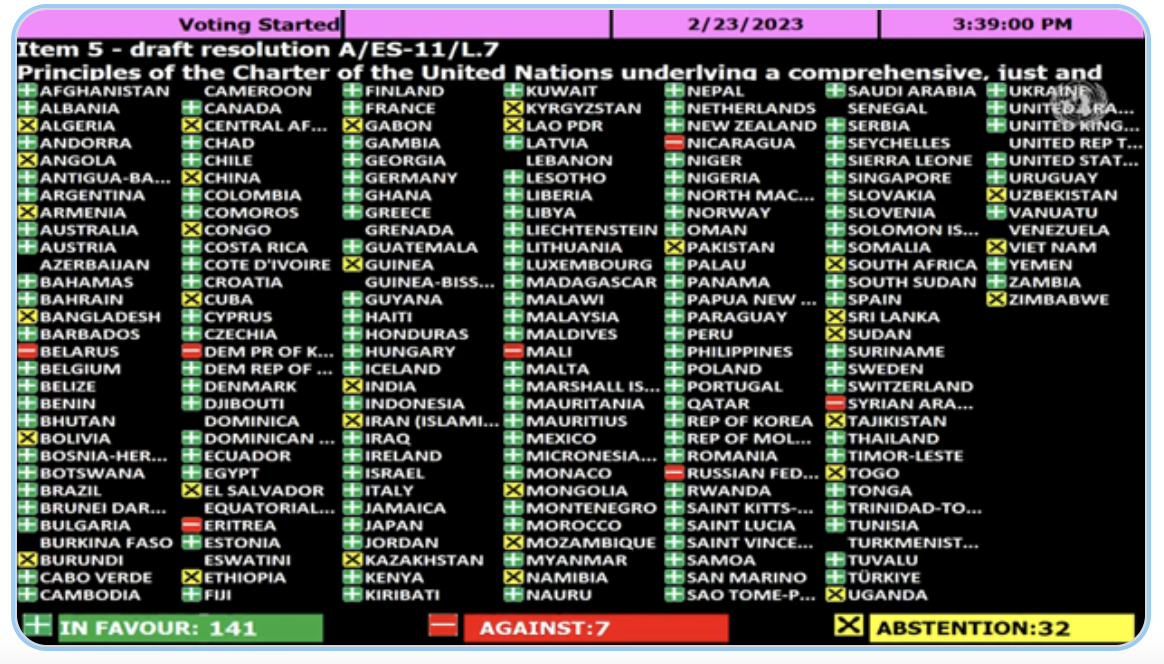
UN General Assembly adopts resolution to end the war against Ukraine and Russia's withdrawal from February 23, 2023
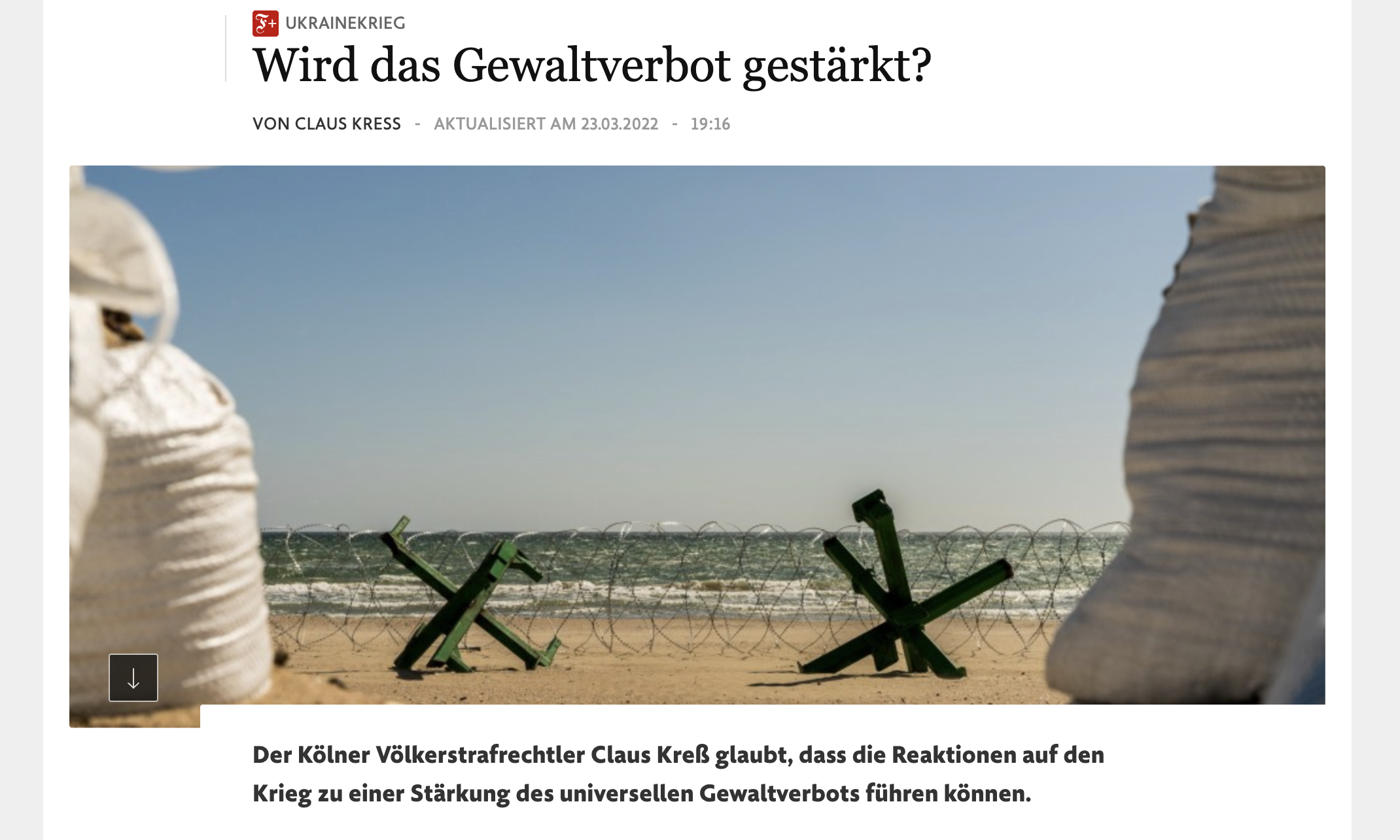
"Is the prohibition of the use of force strengthed?" Headlilne on Frankfurter Allgemeine Zeitung, a German Newspaper, from 23 March 2023
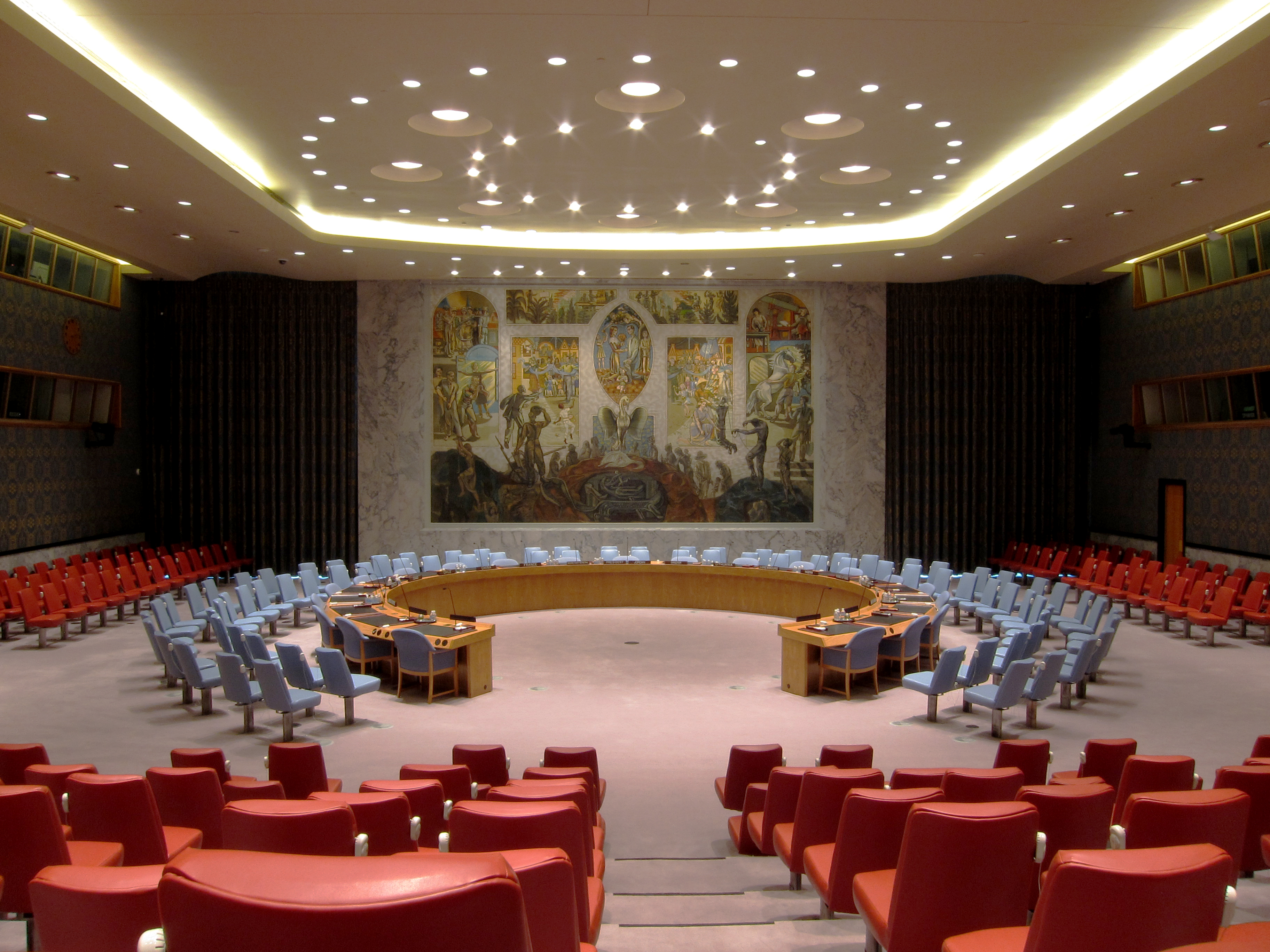
https://commons.wikimedia.org/wiki/File:UN_Security_Council_Nov_16_2023.jpg#/media/File:UN_Security_Council_Nov_16_2023.jpg
Room of the UN Security Council at UN Headquarters in New York
As a result, the Russian attack against Ukraine violates international law, as it is an unjustified military attack on a peaceful and sovereign state.
Some say that the modern peacekeeping system is in crisis since the beginning of this unlawful war.
Violations of international law are often presented as proof of its declining relevance. However, the Russian aggression was condemned by a broad majority of states in the UN General Assembly on March 2, 2022. Consequently, some argue that the peacekeeping system has also received an important confirmation and strengthening despite the serious violation of the law.
But does that convince you?